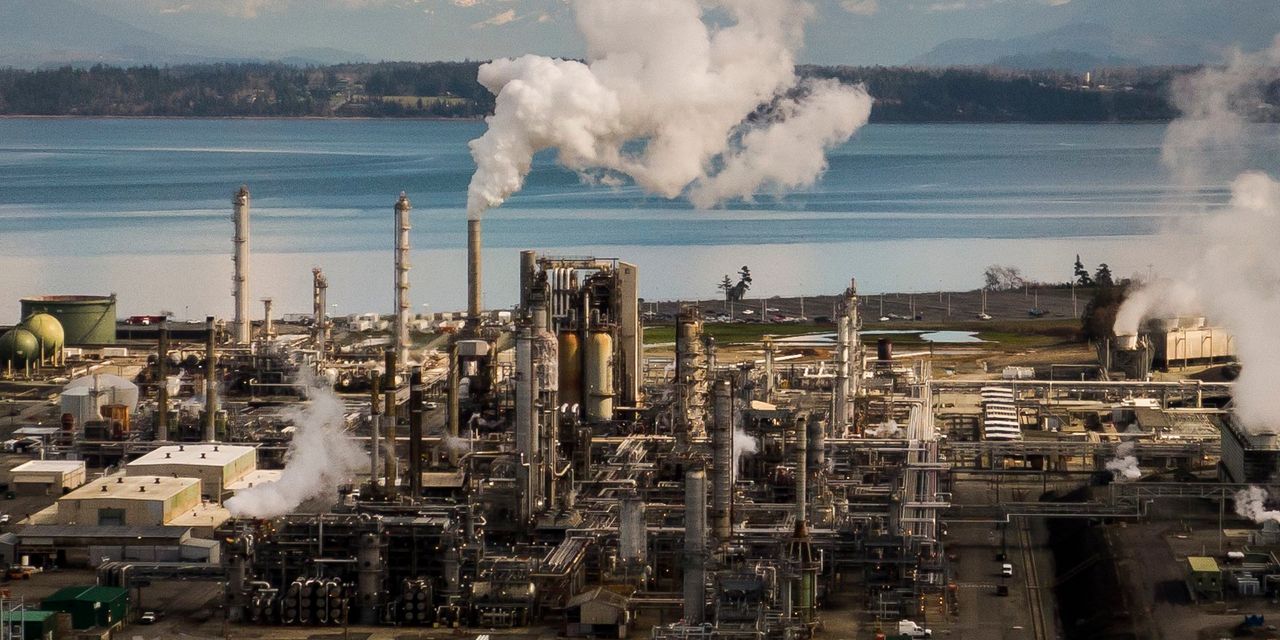Oil futures were edging higher on Tuesday as investors weighed the global economic outlook after central banks for the world’s biggest economies signaled they would keep interest rates elevated for a long stretch to tame inflation, pushing the Treasury yields to their multi-year highs and boosting the allure of the greenback.
Price action
-
West Texas Intermediate crude for November delivery
CL00,
+0.91% CL.1,
+0.91% CLX23,
+0.91%
rose 87 cents, or 0.9%, to $90.46 a barrel on the New York Mercantile Exchange. -
November Brent crude
BRNX23,
+0.07% ,
the global benchmark, gained 48 cents, or 0.5%, to $92.36 a barrel on ICE Futures Europe. -
October gasoline
RBV23,
+0.95%
fell 2 cents, or 0.7%, at $2.48 a gallon, while October heating oil
HOV23,
-1.13%
was off 3 cents, or 0.9%, to $3.17. -
October natural gas
NGV23,
+0.53%
dropped 3 cents, or 0.8%, to $2.88 per million British thermal units.
Market drivers
Oil prices hit 2023 highs earlier this month after Saudi Arabia said it would continue a production cut of 1 million barrels a day through the end of the year and Russia said it would also move to curb exports by 300,000 barrels a day.
Expectations for a significant supply deficit moving into year-end alongside growing optimism over the potential for an economic soft landing as major central banks slowed or ended rate increases were cited for gains.
However, uncertainty around the demand outlook has risen after the Federal Reserve last week indicated rates may continue to move higher and will remain elevated for longer than investors previously anticipated.
Meanwhile, the ICE U.S. dollar index
DXY
on Tuesday jumped to its highest level since November 2022 as rising Treasury yields have kept the greenback well supported against its major peers.
The yield on the 10-year Treasury
BX:TMUBMUSD10Y
rose 1 basis point to 4.547% on Tuesday after advancing to a new 16-year high of 4.541% Monday afternoon, while the yield on the 2-year Treasury
BX:TMUBMUSD02Y
was up 3 basis points at 5.153% versus 5.129% in the previous session.
See: Oil could hit $150, sending ‘shock through system,’ says top shale CEO
Higher oil prices are also attracting added supply, Robert Yawger, executive director for energy futures at Mizuho, said in a note.
The Energy Information Administration’s domestic production estimate is up 700,000 barrels a day since the end of May to 12.9 million barrels a day, shy of the record of 13.1 million barrels a day in March 2020, he noted, while 400,000 barrels a day of Iraqi Kurd barrels sent through the Turkish export facility at Ceyhan are expected to return to the market soon.
“Iranian barrels may come out of the shadows and return to the open market after diplomatic inroads. Plus, new barrels from Suriname, and Guyana, continue to hit the market,” he said.
See: Oil prices at $90 a barrel unlikely to derail the U.S. economy or consumer spending, Goldman Sachs says
Read the full article here













Leave a Reply